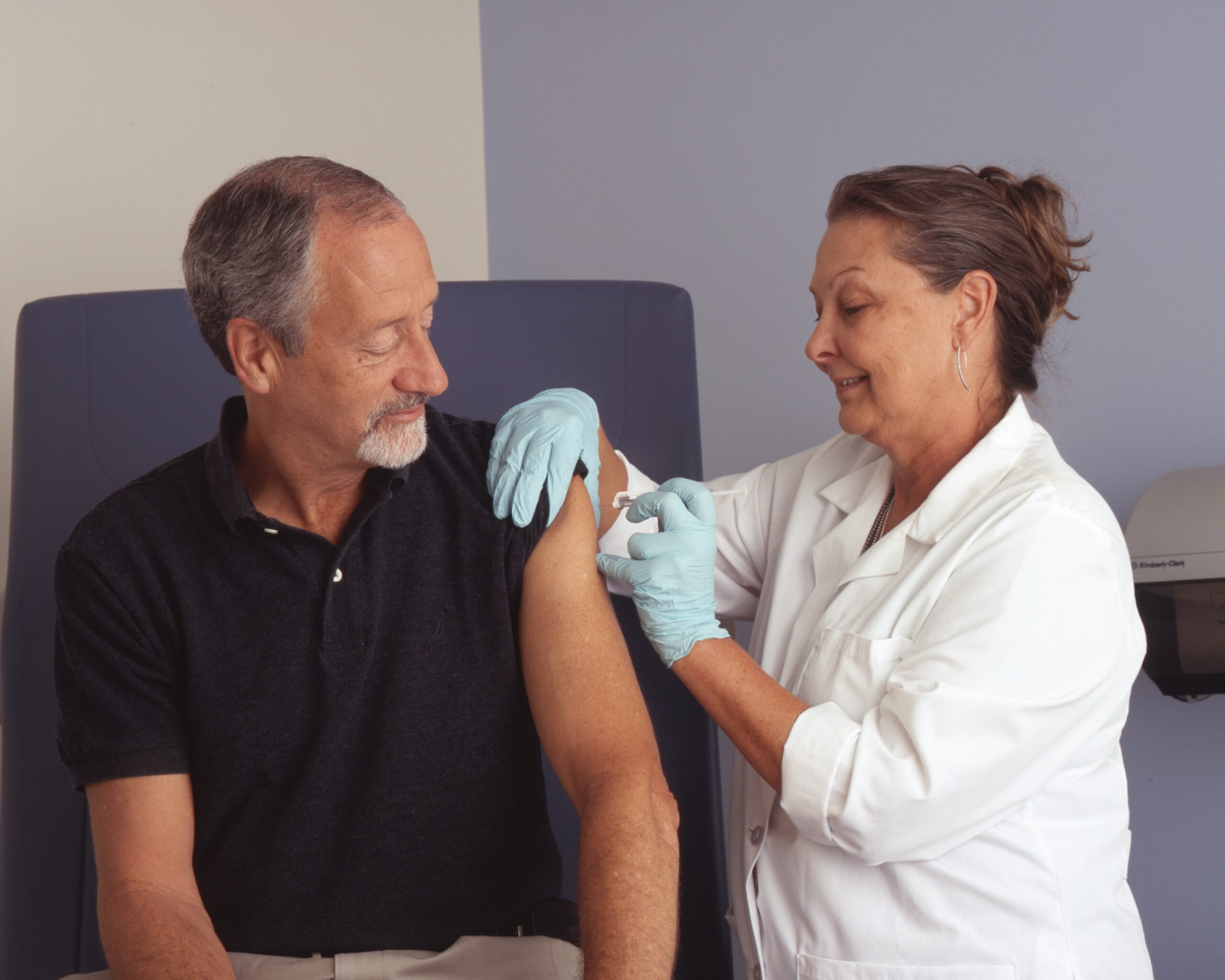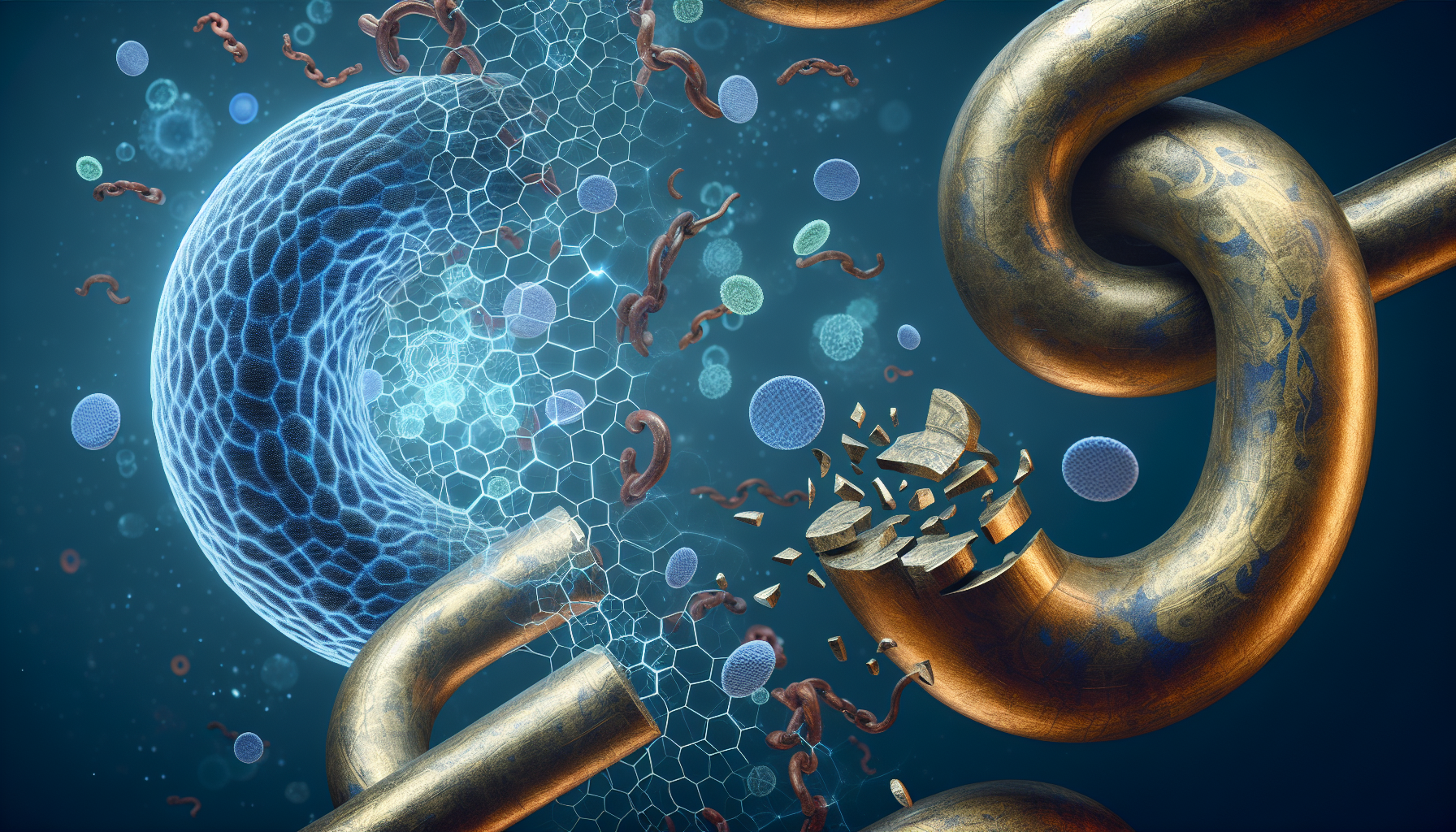Have you ever wondered if prostate problems are linked to erectile dysfunction? It's a topic that many men are curious about, but not everyone knows the answer. In this article, we'll explore the potential connection between prostate problems and erectile dysfunction. Whether you're dealing with prostate issues or simply looking to broaden your knowledge on the subject, this article will provide you with insightful information. So, let's dive into the world of prostate health and its potential impact on erectile function!
Understanding The Prostate Gland
What is the prostate gland?
The prostate gland is a small, walnut-shaped gland that is a part of the male reproductive system. It is located just below the bladder and surrounds the urethra, which is the tube that carries urine and semen out of the body. The prostate gland is responsible for producing and secreting a fluid that nourishes and protects sperm.
Role of the prostate gland
The primary role of the prostate gland is to produce and release a fluid that forms a part of semen. This fluid helps to provide nourishment and mobility to sperm, allowing them to survive and move effectively. The prostate gland also plays a crucial role in the process of ejaculation by contracting to propel semen out of the body.
Common prostate problems
Prostate problems can arise due to various factors, and they become more common as men age. The most prevalent prostate problems include prostatitis, which is inflammation of the prostate gland, benign prostatic hyperplasia (BPH), which involves the enlargement of the prostate gland, and prostate cancer. While these conditions can cause a range of symptoms and complications, there is also a potential link between prostate problems and erectile dysfunction.
Defining Erectile Dysfunction
Understanding erectile dysfunction
Erectile dysfunction, commonly referred to as ED, is the inability to achieve or maintain an erection firm enough for sexual intercourse. It is a widespread condition that can significantly impact a man's self-confidence and overall quality of life. Erectile dysfunction can occur due to a combination of physical and psychological factors.
Common causes of erectile dysfunction
Erectile dysfunction can have both physical and psychological causes. Physical causes may include underlying medical conditions such as diabetes, heart disease, high blood pressure, and hormonal imbalances. Psychological causes of erectile dysfunction may include anxiety, stress, depression, relationship issues, or performance anxiety.
Psychological vs physical causes
While both physical and psychological factors can contribute to erectile dysfunction, it is essential to differentiate between the two. Physical causes of erectile dysfunction typically involve issues with blood flow, nerve damage, or hormonal imbalances, whereas psychological causes are related to emotional and mental factors. Additionally, psychological causes often have a significant impact on the development of performance anxiety, further exacerbating the problem.
Compare Prostate Problems And Erectile Dysfunction
Similarities and differences
Prostate problems and erectile dysfunction share some similarities but are fundamentally different conditions. Both can cause sexual dysfunction and lead to difficulties in achieving or maintaining an erection. However, prostate problems are primarily related to issues with the prostate gland, whereas erectile dysfunction encompasses a broader range of causes and factors.
Understanding the correlation
While the correlation between prostate problems and erectile dysfunction is not fully understood, research suggests a potential link between the two. Prostate issues can affect the nerves and blood vessels that are essential for achieving and maintaining an erection, thereby contributing to erectile dysfunction. Additionally, the emotional strain and psychological impact of prostate problems can also contribute to the development of erectile dysfunction.
Potential risk factors
Certain risk factors may increase the likelihood of experiencing both prostate problems and erectile dysfunction. Age is a significant risk factor for both conditions, as the prevalence of prostate problems and erectile dysfunction increases with age. Other risk factors include a family history of prostate problems, obesity, sedentary lifestyle, smoking, and certain medical conditions such as diabetes and cardiovascular disease.
How Prostate Problems Can Lead To Erectile Dysfunction
Physical impact of prostate issues
Prostate problems can have a physical impact on erectile function due to the proximity of the prostate gland to the structures involved in the erection process. Inflammation, enlargement, or tumors in the prostate gland can put pressure on the urethra and disrupt the normal flow of blood and semen, leading to difficulties in achieving or maintaining an erection.
How prostate diseases cause erectile issues
Prostate diseases, such as prostatitis, BPH, and prostate cancer, can directly interfere with erectile function. Inflammation and infection in the prostate gland can lead to pain and discomfort during sexual activity, making it challenging to achieve or sustain an erection. In the case of BPH, the increased size of the prostate gland can obstruct the flow of urine and impact erectile function. Similarly, prostate cancer and its treatments can also adversely affect erectile function.
Link Between urinary symptoms and erectile dysfunction
There is a significant link between urinary symptoms associated with prostate problems and the development of erectile dysfunction. The enlargement of the prostate gland can result in urinary symptoms such as frequent urination, weak urine flow, and a feeling of incomplete emptying of the bladder. These symptoms can cause anxiety and stress, which can contribute to the development of erectile dysfunction.

Profiling Prostate-Related Conditions That May Cause Erectile Dysfunction
Prostatitis and erectile dysfunction
Prostatitis is the inflammation of the prostate gland and can be either acute or chronic. Acute prostatitis is usually caused by a bacterial infection, while chronic prostatitis may occur due to a combination of factors, including bacteria, inflammation, and pelvic floor muscle dysfunction. Both types of prostatitis can contribute to the development of erectile dysfunction due to the pain, discomfort, and anxiety associated with the condition.
Benign prostatic hyperplasia and erectile dysfunction
Benign prostatic hyperplasia (BPH), also known as an enlarged prostate, is a non-cancerous condition characterized by the enlargement of the prostate gland. BPH can cause urinary symptoms such as frequent urination and weak urine flow, but it can also contribute to erectile dysfunction. The increased size of the prostate gland can compress the urethra and disrupt blood flow, leading to difficulties in achieving or maintaining an erection.
Prostate cancer and erectile dysfunction
Prostate cancer is a significant concern for men, and its treatments can have a significant impact on erectile function. Surgical removal of the prostate gland (prostatectomy), radiation therapy, and hormone therapy can all affect the nerves, blood vessels, and hormonal balance necessary for erectile function. While treatments for prostate cancer have advanced significantly, erectile dysfunction remains a common side effect.
Medical Diagnostic Procedures And Their Impact On Erectile Function
Overview of diagnostic procedures
When evaluating prostate problems or erectile dysfunction, various diagnostic procedures may be employed. These can include physical examinations, blood tests, imaging studies, and urodynamic tests to assess urine flow and bladder function. In the case of erectile dysfunction, additional tests such as nocturnal penile tumescence testing or ultrasound may be conducted to understand the underlying causes.
How prostate biopsies can affect erections
Prostate biopsies are performed to evaluate the presence of cancerous or abnormal cells in the prostate gland. While generally safe, the procedure can have potential side effects, including temporary erectile dysfunction. The biopsy needles can cause minor damage to the nerves and blood vessels involved in erectile function, leading to difficulties in achieving or maintaining an erection. However, these side effects are typically temporary and resolve within a few weeks.
Impact of prostate surgeries
Surgical procedures for prostate problems, such as prostatectomy or surgery to treat BPH, can have a significant impact on erectile function. The removal of the prostate gland can potentially damage the nerves and blood vessels responsible for erectile function, resulting in erectile dysfunction. However, advancements in surgical techniques, such as nerve-sparing procedures, have helped minimize the risk of erectile dysfunction following surgery.

Treatment of Prostate Conditions and Impact On Erectile Function
Prostate medication and erectile dysfunction
Medications used to treat prostate conditions, such as alpha-blockers or 5-alpha-reductase inhibitors, can have various effects on erectile function. While some medications may have minimal impact on erectile function, others can cause difficulties in achieving or maintaining an erection as a side effect. It is important to discuss any concerns or potential side effects with a healthcare professional when considering prostate medication.
Radiation therapy and erectile dysfunction
Radiation therapy is a common treatment for prostate cancer, and it can cause significant erectile dysfunction. The radiation used to target and destroy cancer cells can also damage the surrounding healthy tissues, including the nerves and blood vessels responsible for erectile function. The severity of erectile dysfunction following radiation therapy can vary depending on the dosage and duration of the treatment.
Surgery and erectile dysfunction
Surgical interventions for prostate conditions, including prostatectomy or surgery for BPH, can lead to erectile dysfunction. The removal of the prostate gland can damage the nerves and blood vessels involved in erectile function, leading to difficulties in achieving or maintaining an erection. However, advancements in surgical techniques, such as nerve-sparing procedures, aim to preserve erectile function and minimize the risk of erectile dysfunction following surgery.
Managing Erectile Dysfunction Caused By Prostate Issues
Medical treatments for erectile dysfunction
Managing erectile dysfunction caused by prostate issues often involves the use of medical treatments. Oral medications such as phosphodiesterase-5 (PDE5) inhibitors, including sildenafil (Viagra), tadalafil (Cialis), and vardenafil (Levitra), are commonly prescribed to improve erectile function. These medications work by enhancing the effects of nitric oxide, a chemical that relaxes the muscles in the penis and increases blood flow, facilitating an erection.
Lifestyle changes to improve erectile dysfunction
In addition to medical treatments, making certain lifestyle changes can help improve erectile dysfunction caused by prostate issues. Maintaining a healthy weight, engaging in regular exercise, managing stress levels, and avoiding smoking and excessive alcohol consumption can have a positive impact on erectile function. Additionally, open communication with a partner and seeking emotional support can help alleviate the psychological burden associated with erectile dysfunction.
Psychological support for men with erectile dysfunction
Erectile dysfunction can have a profound impact on a man's mental and emotional well-being. Seeking psychological support, such as therapy or counseling, can be beneficial for men experiencing erectile dysfunction. Addressing underlying psychological issues, improving communication skills, and developing coping strategies can help reduce anxiety, stress, and performance-related concerns, leading to an improvement in erectile function.
Preventing Erectile Dysfunction in Men with Prostate Problems
Healthy lifestyle habits
Adopting healthy lifestyle habits can play a significant role in preventing erectile dysfunction in men with prostate problems. Maintaining a balanced diet rich in fruits, vegetables, whole grains, and lean proteins can promote overall cardiovascular health and minimize the risk of developing conditions that can contribute to erectile dysfunction. Regular exercise, stress management techniques, and avoiding smoking and excessive alcohol consumption are also crucial in maintaining erectile function.
Regular medical check-ups
Regular medical check-ups and screenings are vital for early detection and management of prostate problems. By monitoring prostate health and addressing any issues promptly, the risk of developing complications that can impact erectile function can be minimized. Routine screenings, such as prostate-specific antigen (PSA) tests or digital rectal examinations, can help detect any abnormalities before they progress.
Early detection and treatment
Early detection and treatment of prostate problems are essential in managing the risk of erectile dysfunction. Regular check-ups and screenings can help identify any prostate issues or abnormalities early on, allowing for prompt intervention and appropriate management. With advancements in medical technology and treatment options, early detection and treatment can provide the best chances for preserving erectile function and maintaining overall prostate health.
Future Research Directions
Current knowledge gaps
While there has been progress in understanding the correlation between prostate problems and erectile dysfunction, there are still significant knowledge gaps. Further research is needed to more accurately determine the specific mechanisms and pathways by which prostate problems contribute to erectile dysfunction. Additionally, the impact of various treatment modalities on erectile function and the development of new treatment options remains an area of ongoing research.
Potential advancements in treatment methods
Advancements in treatment methods for prostate problems and erectile dysfunction offer hope for improved outcomes. Continued research may lead to the development of targeted therapies that minimize the side effects on erectile function while effectively managing prostate conditions. Furthermore, the exploration of innovative treatment approaches, such as gene therapy or stem cell therapy, holds promise in improving both prostate health and erectile function.
Importance of ongoing research
Ongoing research is crucial in expanding our understanding of the relationship between prostate problems and erectile dysfunction. By addressing current knowledge gaps and exploring new treatment options, researchers can make significant strides in improving outcomes for men with both conditions. Continued research advancements hold the key to enhancing prevention, diagnosis, and treatment methods, ultimately improving the overall quality of life for men affected by prostate problems and erectile dysfunction.
In conclusion, while the correlation between prostate problems and erectile dysfunction is complex and multifaceted, it is evident that there is a strong link between the two. Prostate issues can impact erectile function through physical disruptions in the prostate gland and its surrounding structures, as well as the emotional and psychological burden experienced by individuals with prostate problems. Understanding this correlation, along with early detection, accurate diagnosis, and prompt treatment, can help mitigate the impact of both prostate problems and erectile dysfunction. Through a multi-faceted approach that includes medical treatments, lifestyle changes, and psychological support, men with prostate problems and erectile dysfunction can regain control of their sexual health and overall well-being. Furthermore, ongoing research is essential in advancing our knowledge and developing innovative treatment methods to address the unique challenges posed by these conditions, ultimately improving outcomes and quality of life for the affected individuals.


